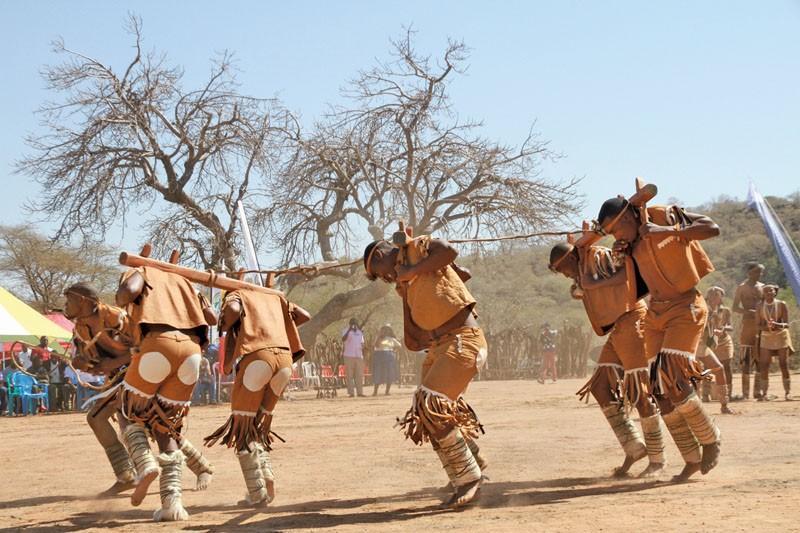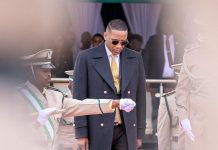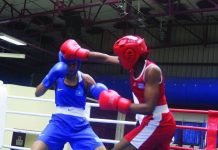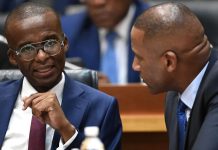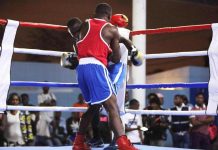Africa-Press – Botswana. The long-awaited Masaseng Cultural Festival made its return this year after decades of inactivity, bringing with it a display of tradition, performance, and pride, though the turnout was modest.
The festival, held at Mosiiwa Grounds, saw various traditional groups take turns performing from their respective wards, in celebration of Bangologa Culture. From spirited choir renditions to captivating drama performances, the day offered a rich blend of artistic expression.
Yet, it was the food displays that stole the spotlight, with indigenous flavours, especially melon-based dishes dominating the menu, coupled with other exhibits which included beautifully crafted wild-animal skins, intricate woodcraft, and demonstrations of how the community lived in the past.
Delivering the keynote address, Hukuntsi District Council chairperson, Steven Lekgobero, hailed culture as a driving force for progress.
Speaking to the festival’s theme: Our Culture: A Symbol for Progress, he said the event reflected a dynamic culture that united the village’s nine wards, who despite their diversity proudly identify as Bangologa.
He linked the celebration to Vision 2036’s recognition of culture as a “unique, dynamic and irreplaceable body of values, traditions, and languages” that fostered nation building and cohesion. Lekgobero further commended government for recognising the role of Dikgosi as unifying figures in society.
He said that government saw culture not only as a foundation for unity but also as a key driver for economic growth through cultural tourism. “In our first days in office, we moved decisively to place the promotion and preservation of culture under Bogosi in the Ministry of Local Government and Traditional Affairs,” Lekgobero said.
He shared that government deliberately shown its intention to empower Bogosi so they could fully carry out this mandate and contribute to economic progress. Lekgobero said that Bangologa community was widespread and dynamic across the district and beyond, and urged residents not to be discouraged by the small turnout, assuring them that the festival’s future was bright.
“This is only the starting point. This festival is destined to grow and become a proud feature of our cultural calendar,” he said.
Hukuntsi Kgosi Merapelo Tshweneyagae commended orgainisers’ inspiring efforts to preserve and celebrate indigenous culture through the festival.
He said the festival drew its name from a revered ancestral leader, Phegadu, the second-born child of Mongologa, and rooted in the traditions of the Barolong community, adding that Masaseng meant ‘to revive’.
Many attendees hail from the broader Mongologa lineage, which includes groups such as the Banama and Basarwa, predominantly residing in the Kgalagadi region. Kgosi Tshweneyagae said it was critical to celebrate culture and to restore it as it was fading.
“We noticed that our youth are growing up detached from our traditions, it is up to us as parents to ensure fully pass such to them,” he said. Relaying the history of Bangologa, the traditional leader shared that they were from Transvaal in south Africa, adding that they fled to Botswana in fear of the boer and Ndele attacks.
He indicated that while fleeing some passed through Molopo river to Kgalagadi, while others spread to the rest of the country in villages such as Molepolole, Sekoma, Moiyabana, Mosolotsane and khakhea.
Kgosi Tshweneyagae said despite being the earliest inhabitants of Botswana their rich tradition seem to be diminishing, adding that their historical accounts was meagre and disjointed, hence the need to trace their history, describe their traditions and culture.
He said that the name Bakgalagadi came from the region they lived in, ‘Kgalahari’, meaning great thirst, therefore Bakgalagadi meaning people of great thirst land. For that he said Bakgalagadi were not a cultural monolith, but like tswana, a group of different tribes.
Kgosi Tshweneyagae shared that Bakgalagadi comprised Babolaongwe, Bangologa, Bashaga, Bakgwatlheng, Balala, and Baphaleng.
For More News And Analysis About Botswana Follow Africa-Press

